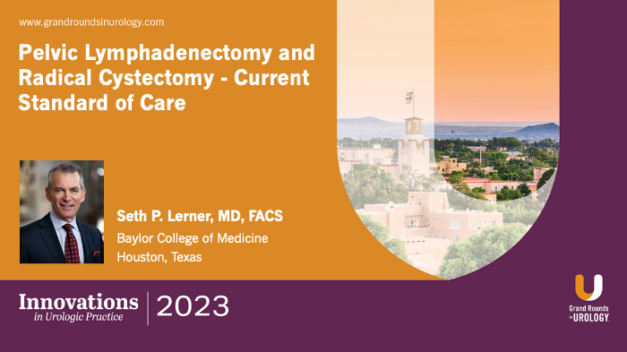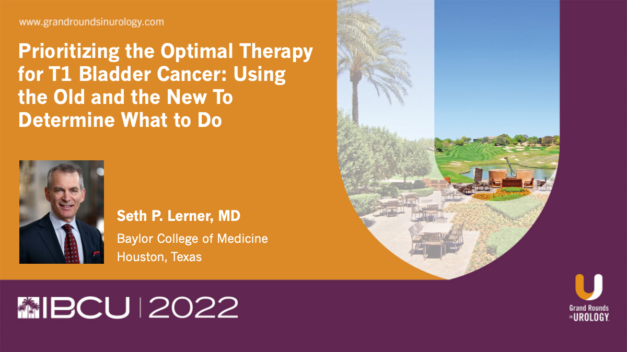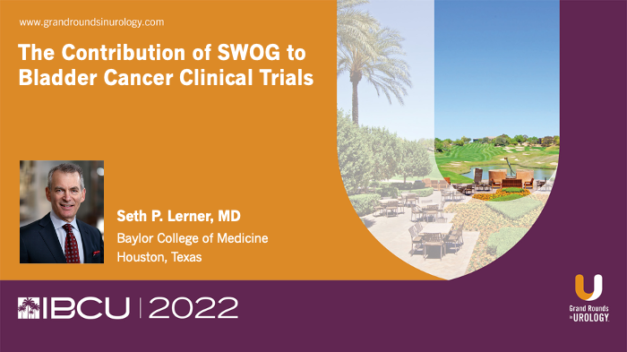Pelvic Lymphadenectomy and Radical Cystectomy – Current Standard of Care
Seth P. Lerner, MD, FACS, reviews the current standard of care for pelvic lymphadenectomy and radical cystectomy in treating bladder cancer. He begins by focusing on the technique and extent of pelvic lymphadenectomy performed in conjunction with radical cystectomy. He illustrates that an extended approach can improve oncologic outcomes, including better cancer-specific survival and overall survival rates, by ensuring more comprehensive removal of potential metastatic sites.
Dr. Lerner then addresses advancements in surgical techniques, including robotic-assisted surgery for radical cystectomy and lymphadenectomy. He discusses the potential benefits of robotic surgery while also considering the challenges and learning curve associated with these technologies.
Dr. Lerner concludes with a review of postoperative management and follow-up care and discusses future directions and ongoing research. He emphasizes the need for continued investigation into optimizing surgical techniques, enhancing patient outcomes, and integrating new therapeutic modalities with surgery.
Read More



